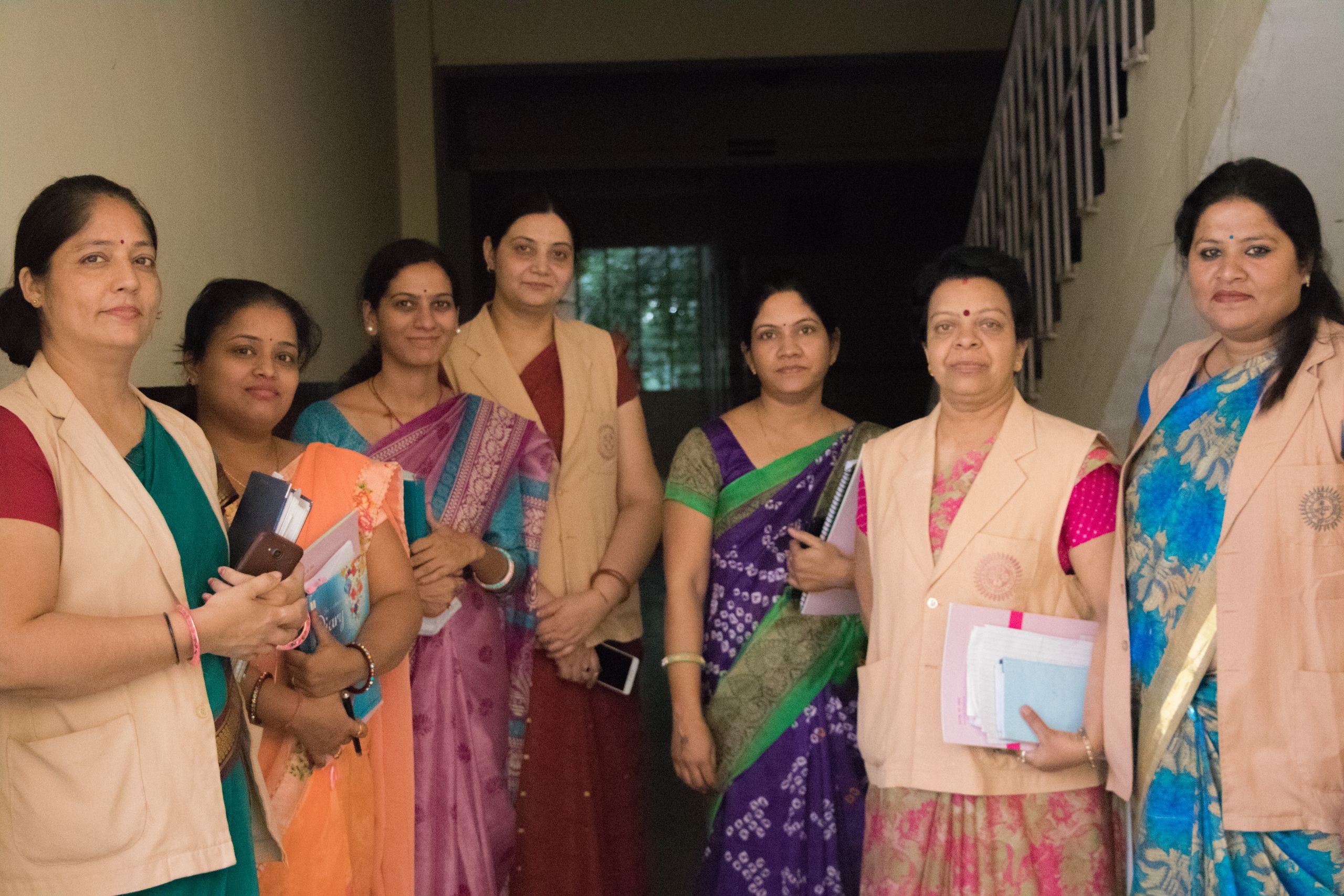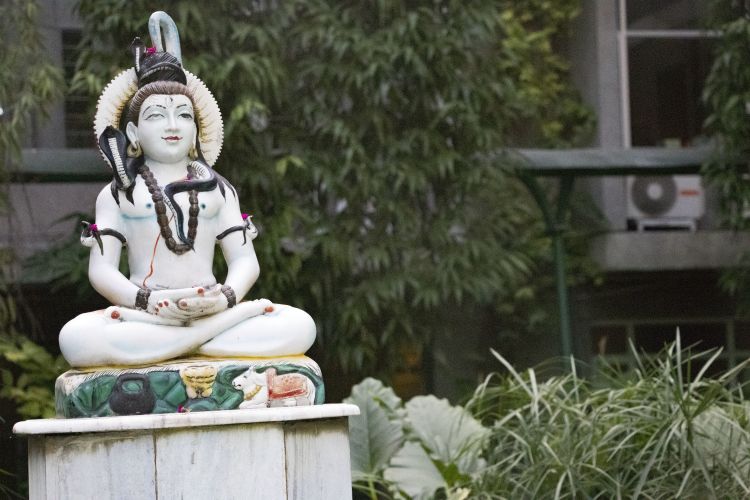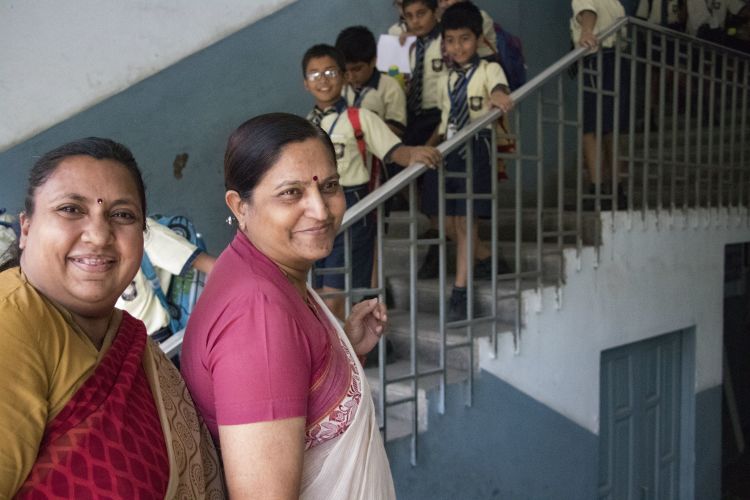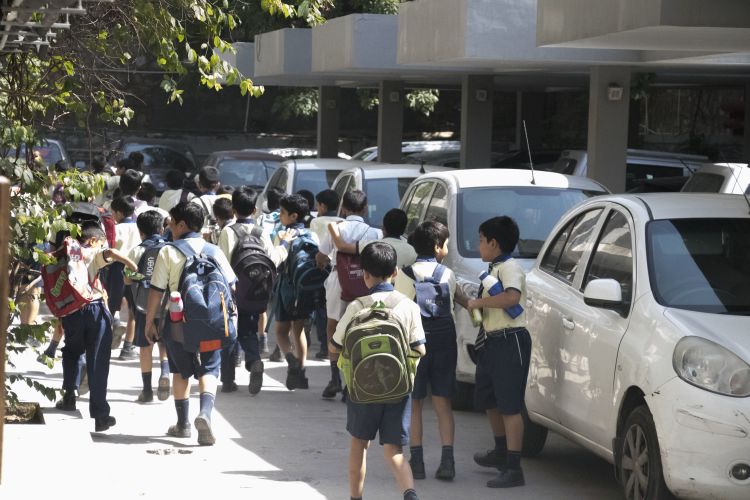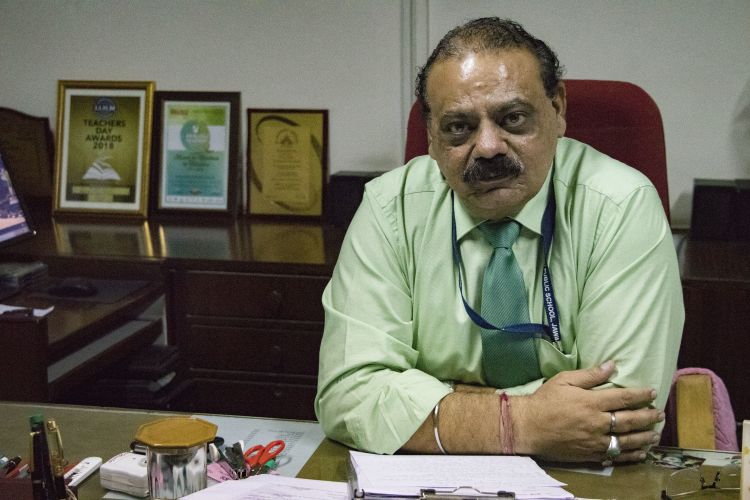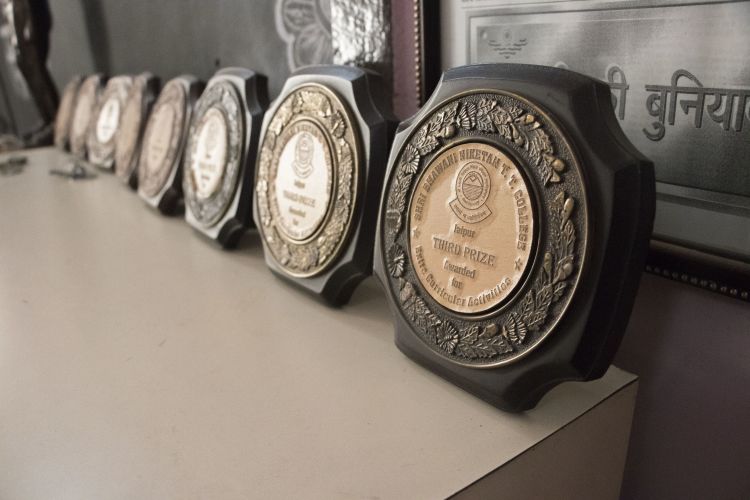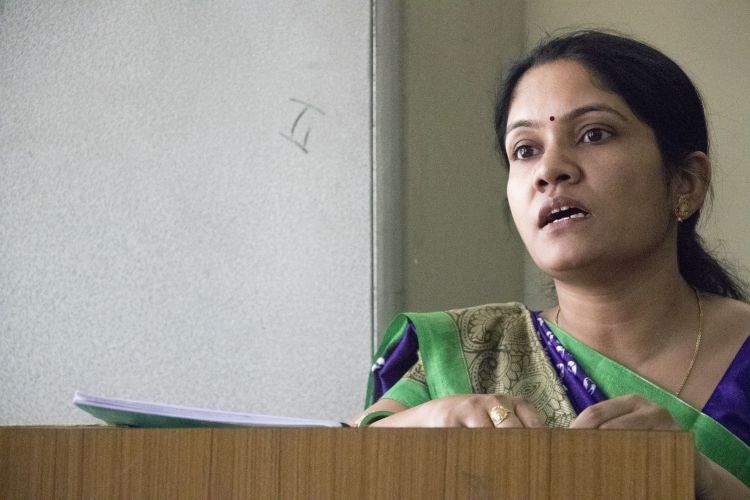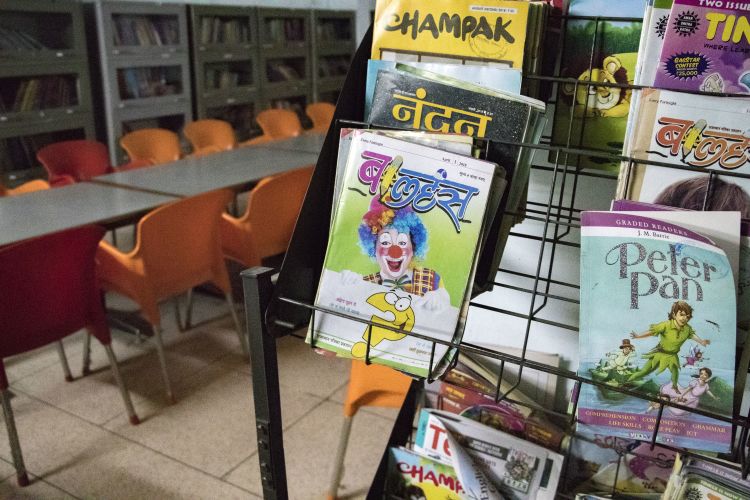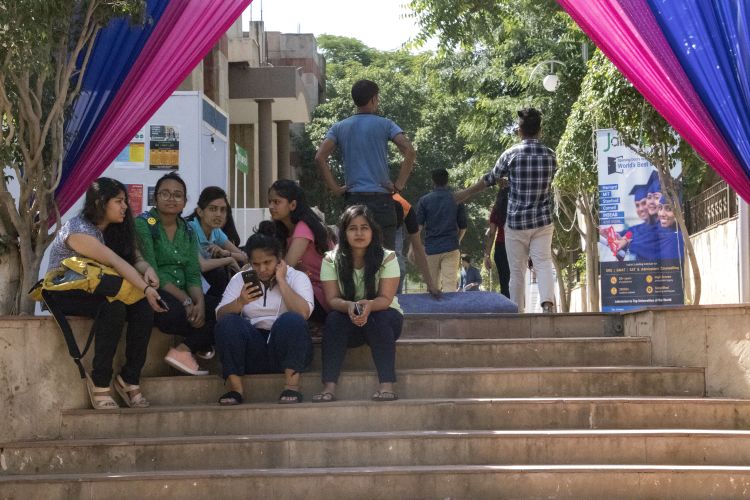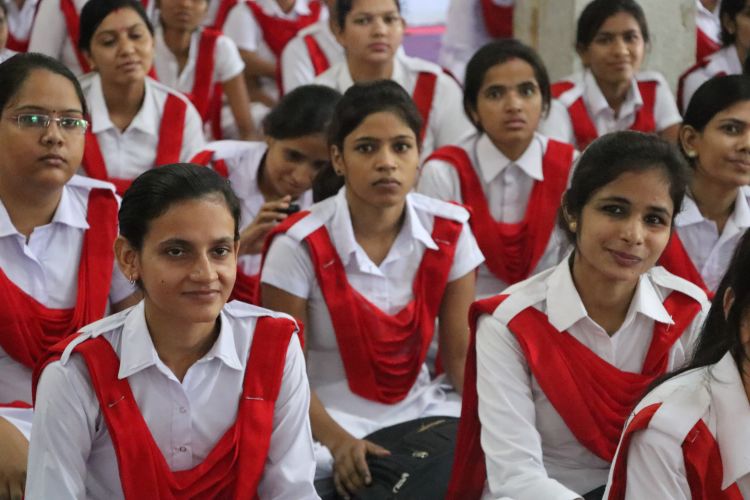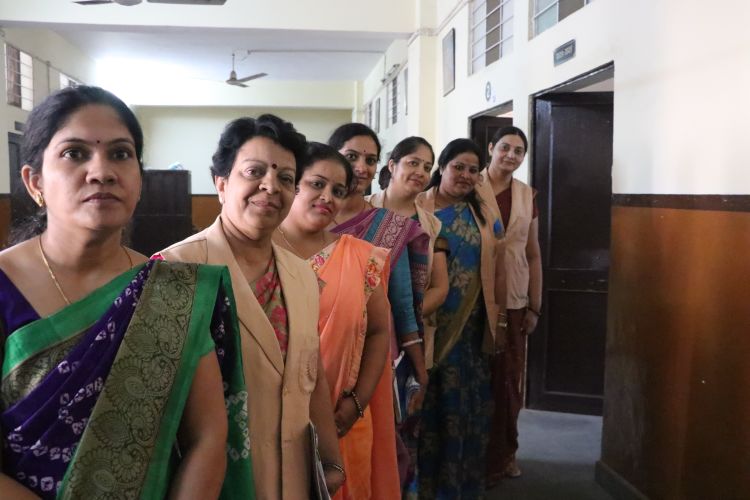Why We Need to Value Our Teachers
The growing recognition of teachers in Jaipur and what Australia can learn from the Indian approach to the value of education.
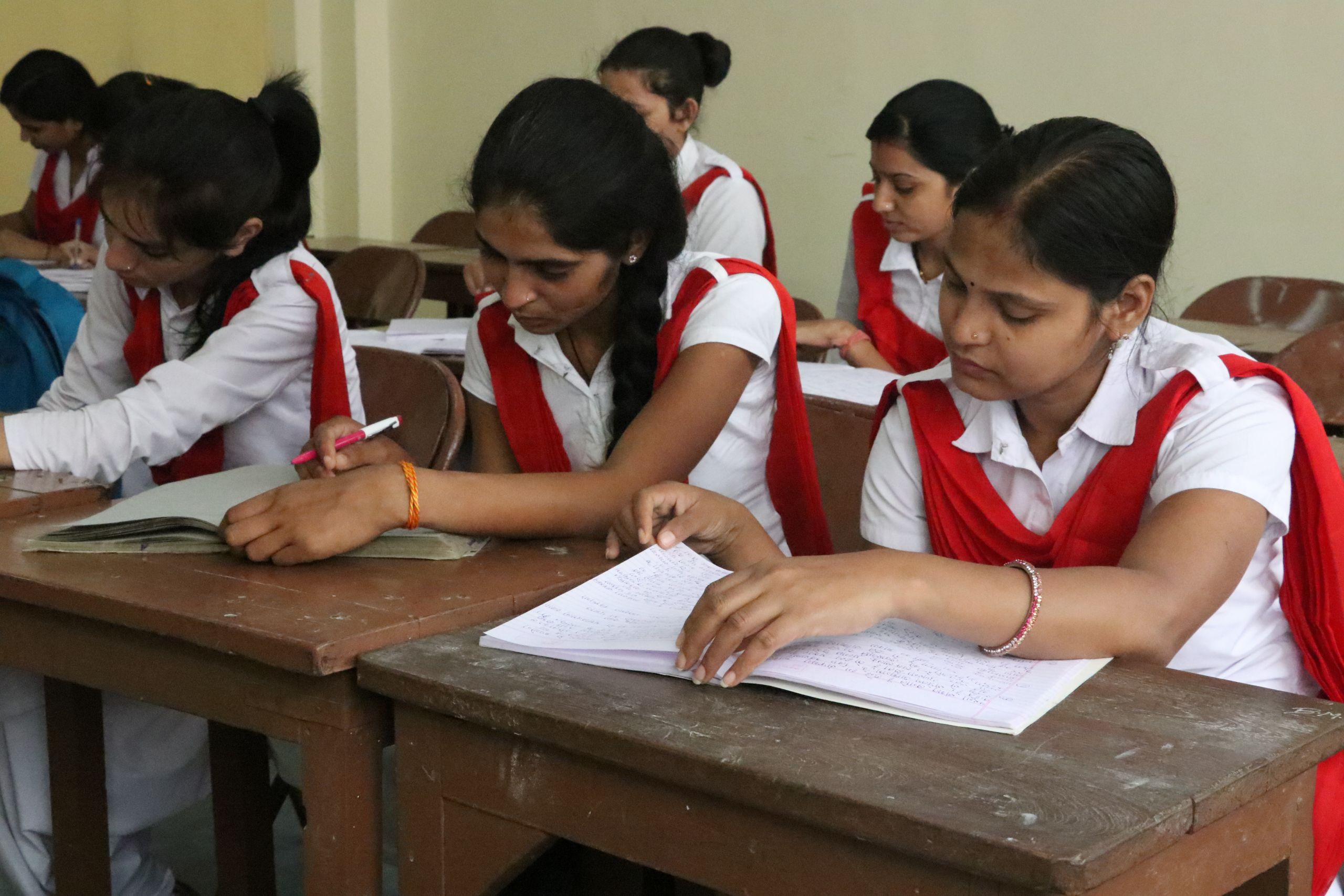
The growing recognition of teachers in Jaipur is re-defining the approach to teaching and has fostered the education of young pre-service teachers, helping create well-equipped teachers for the country’s developing education system.
Education has always been important in the Indian culture.
The Government, local communities, and teaching communities have been working to promote the value of teachers and pre-service teacher education.
Rachna Gehlot, Associate Professor at Geeta Bajaj Women Teachers' College, says that there has been a lot of work done in the last decade to improve and promote education in Jaipur.
‘After every ten years the government makes plans to improve the education level, but we haven’t achieved that yet,’ says Professor Rachna Gehlot
‘The government is working to improve the system and a lot more policies are there to promote it,’ she says.
The government and local communities in Jaipur have been working to improve the education systems to bring down the poverty rate and increase the employment numbers.
India is still considered a third-world country, with a large percentage of the population living below the poverty line.
India believes that education is key to developing the country and saving people from poverty.
Many young people in Jaipur are able to reap the benefits of the growing education systems.
Those lucky enough to receive education provided by government and non-government institutions are grateful for the hard work and effort made by these institutions to promote the value of education.
Pre-service teacher, Prerna Jain, says that Indians acknowledge the efforts of the schools in Jaipur.
Miss Jain says that they are grateful for the education that they have received and that most Indians want to repay the system for their education.
‘We study for fourteen years in school, so we get every value—which India is famous for their social values—we get it from schools,’ Prerna Jain says.
‘So, I want to repay it because we learned discipline here, we learned to be a better person here, we learned fraternity, integrity.’
‘We learn everything here, so I want to pay back,’ she says.
Dr Ashok Vaid, Principal at Maheshwari Public School, says that education has become a larger focus in Jaipur because of the growing need for skill development and employability.
‘Skill development has become a larger part of the Indian education system and people are seeing the value of this kind of education,’ says Dr Ashok Vaid.
‘You have to have that kind of education that makes you employable.’
‘If you really want knowledge or information you could go directly to Google.com and you can see anything in the world, everything is available, but how that knowledge is practically used in daily life—that is education.’
‘Education is very helpful in the modification of human behaviour. And, until you modify human behaviour, you can never do anything,’ he says.
Dr Ashok Vaid says the people in Jaipur recognise the importance of teachers now more than ever and this is because teachers are the ones to facilitate the development of the country.
‘Teachers are important because teachers bring the change,’ says Dr Ashok Vaid.
Teaching is a noble profession in India that requires great trust and much responsibility.
Imrose Amin, a young pre-service teacher in the first year of her Bachelor of Education degree, says that she and many other students in her class have chosen the teaching profession because it is noble.
‘I know it is a noble profession,’ Imrose Amin said.
‘Teacher is more than a teaching. It is a mentor. They are role model and the builders of the nation.’
‘They are the builders of the nations and they love, they cherish, they are the mentors,’ she say.
The people of Jaipur recognise the important work teacher's do and are working to promote the work of these teachers, making them feel valued enough to effectively teach and strengthen the education system.
Educating students on the value of their teachers in Jaipur is not the only focus; Indian schools and government groups have been working to promote the value of education to parents also.
The government has included schemes to attract parents to send their children to school.
The school communities work with parents to promote the value of teachers and the value of their child’s education.
Manan Chaturvedi, chairman at the commissioner’s office of child protection, says the government has included many effective policies to increase education enrolment.
‘The government has so many good plannings [sic],’ says Manan Chaturvedi.
‘So many facilities go to them [children] like the Mid-day meal, like milk distributions, like free books.’
Our teachers from time to time are going to the parents also to guide them to take your child in the [school] semesters,’ she says.
‘At one time the parents are not interested to take them [children] to the school, but when I motivated them, why not?’
‘We accepted the challenges and we are fighting with that,’ she says.
‘[The commissioner’s office] working with parents yes.’
‘Slowly, slowly the ratio is going high [for school enrolment]; they are going into the schools,’ says Manan Chaturvedi.
Garima Shekhawat, says that parents play an important role in their children’s values.
‘Parents have a big role if the kids are respecting… actually parents play an important role in that.’
‘If they [parents] will not respect us then how do they expect their kids to respect us and learn?’ says Mrs Shekhawat.
Dr Ashok Vaid, says that the attitudes towards teachers and education have improved greatly.
‘This is a country where, now, you are given a high reputation and high respect from parents. Parents have full faith in teachers because everybody is working nowadays,’ says Dr Vaid.
The attitudes towards respect for teachers in Jaipur have significantly shaped the effectiveness of teaching in schools, but it has also affected the way they prepare young pre-service teachers in Jaipur.
Professor Sandhiya Ji, from Geeta Bajaj Women Teachers' College, has spoken of the ways the Bachelor of Education [B.Ed] and Master of Education have started to gain respect and interest from young Jaipur students.
‘Students are wanting to join the B.Ed course because teaching profession is a valued, responsible profession and we make many professions such as doctors, engineers, advocate,’ says Dr Sandhiya Ji.
Young pre-service Teacher's in Jaipur are practically prepared for their careers as teachers.
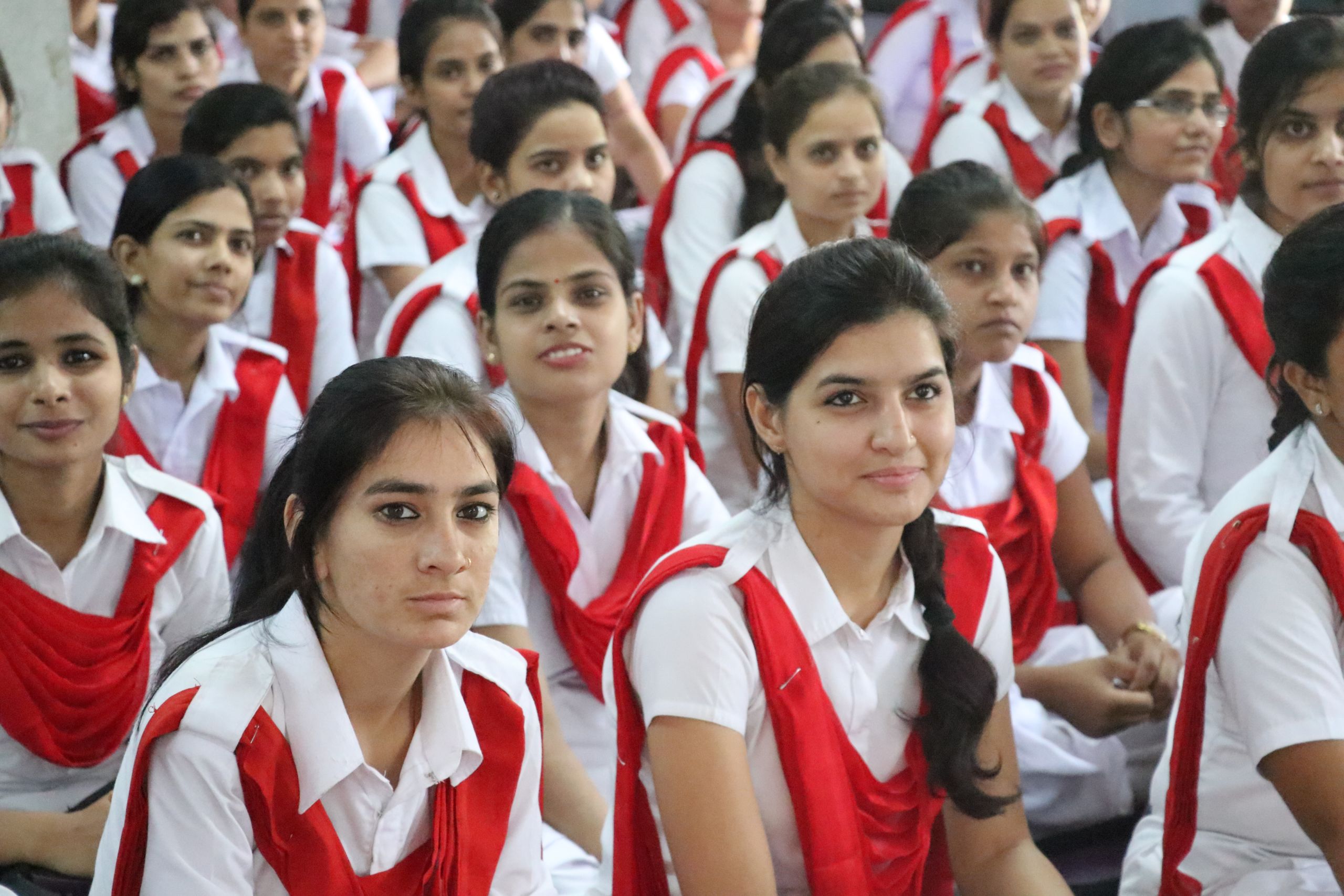
In Jaipur, the Bachelor of Education is a high-paced two-year degree.
Pre-service teacher students are enrolled in nine subjects a semester and complete practical examinations at the end of each year.
Dr Swikriti Sharma, a Bachelor of Education Assistant Professor, says that they prepare classes for pre-service teachers that are practically based.
‘We conduct some micro-teaching skill lessons; we teach them how to teach [their] students better and best,’ says Dr Swikriti Sharma.
‘Practical assessment is more important as they face the real situation and then they know how to handle it,’ she says.
Dr Sandhiya Ji says that the process for teaching pre-service teachers is well-thought and strategic.
B.Ed courses emphasise practical teaching and work rigorously to prepare teachers for real-life teaching scenarios.
Dr Sandhiya Ji, says that skill-based learning is important in school education as well as in higher education and that this is a large focus in the B.Ed courses crafted for aspiring teachers.
‘I emphasise on the quality of the education because quality of education is a very important role to complete any skills and professionalism,’ says Dr Sandhiya Ji.
‘In first year, one month they do their internship programs in many other schools.’
‘In the last year [there is a] four months internship programs; It is compulsory for every student,’ she says.
‘Student teachers teach in many different classes and subjects and they improve their skills and their professionalism.’
‘Our secondary students go into many schools to complete their practical work and they learn more and more in the practical environment: how to manage the class, how to use office key, how to use a blackboard, how to ask the questions, how to solve the problems of a student, and all the other co-curricular activities.
‘They maintain how to maintain the register, the attendance sheets and prepare the examinations and lesson plans, paper setting, and the answers,’ she says.
Although the courses do vary, they are all in-depth and follow a strict practical-based curriculum that prepare pre-service teachers successfully.
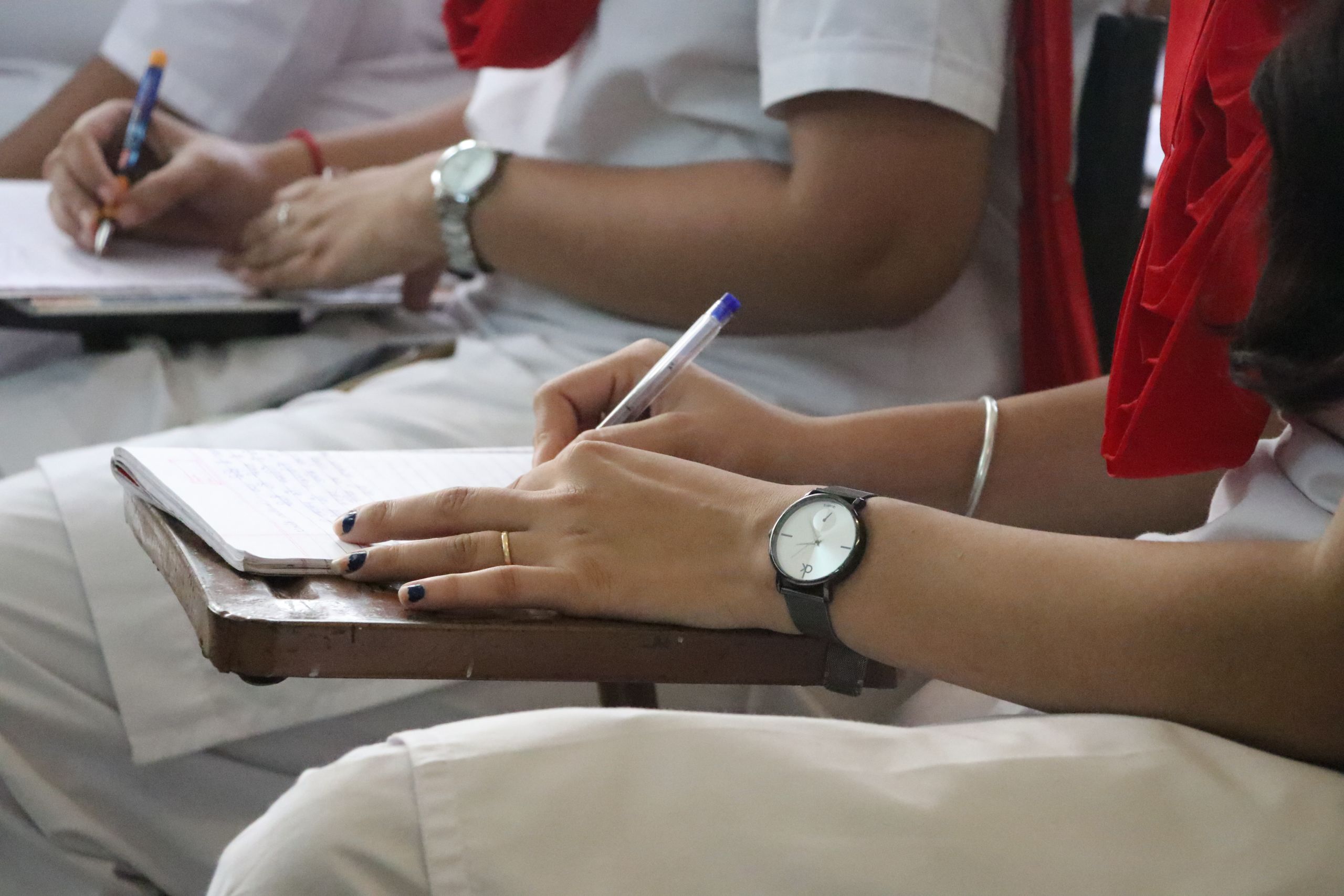
Dr Ji says that the growth and development of the B.Ed degree in Jaipur is something she is very proud of.
‘I like to think this is a very good program and feel so proud that I am a teacher of teacher.' she says.
Dr Sandhiya Ji says that the B.Ed courses in Jaipur vary from course to course.
‘The syllabus is very different from each university [and college].’ Says Dr Sandhiya Ji.
Garima Shekhawat, a young-graduate teacher, says that her experience with university and completing her Bachelor of Education was perfectly suitable.
‘We were sufficiently taught confidence; I gained my confidence by doing my B.Ed,’ says Garima Shekhawat.
‘I know this [teaching skills], and I can do it.’ says Mrs Shekhawat.
In some areas of Jaipur, the education is so strong that it only produces children with the most elite skills, however, in other areas, students fall behind in their work as some government schools are drastically understaffed.
Considering these different learning environments in Jaipur, Mrs Shekhawat still says that pre-service teachers are taught well enough and that she and her fellow graduates were confident of their ability.
‘Whatever we have learned from our B.Ed institute, I think, is enough to teach anyone whether it’s a high society private school or whether it’s low privileged, street children,’ says Mrs Shekhawat.
Teaching degrees in Jaipur produce confident teachers who feel more than prepared to go straight from university into their careers.
In comparison, when Australian pre-service teachers are asked how well prepared they feel to teach in classrooms, their answer was quite the opposite.
A long serving teacher, who asked not to be named, says that the pre-service teacher education in Australia could improve.
‘When I graduated university, I did most of my learning on the job,’ says the source
Taylah Di Gregorio, pre-service teacher, feels as though the universities could be doing more to support students before they graduate.
‘I think they could be prepared a little more as I’m currently at the end of my third year of primary education and still feel like I have a lot more to learn before I’m ready for my own class,’ says Taylah Di Gregorio.
Miss Di Gregorio also says that those in the education industry do not feel valued by the general public
‘I don’t think teachers receive the recognition for what they do let alone what they get paid.’
Unlike the Bachelor of Education in India, Australian universities hold off practical assessments until the second year.
‘The entire first year of university was all theory work. I believe an early taste for teaching [in Australian universities] would help immensely.’
Australian education and Indian education differ from each other in a variety of ways and have much to learn for each other in different respects.
In Australia, the Bachelor of Education is a four-year degree whereas in India, it is only two-years.
It is interesting to note that in half the time, pre-service teachers in India can feel more comfortable in their teaching roles than Australian pre-service teachers do after finishing a four-year degree.
The university bachelors are structured differently in both countries to accommodate the cultural differences, but there could be some things to learn from Jaipur’s approach to educating young pre-service teachers as well as how they approach education of the children in Jaipur.
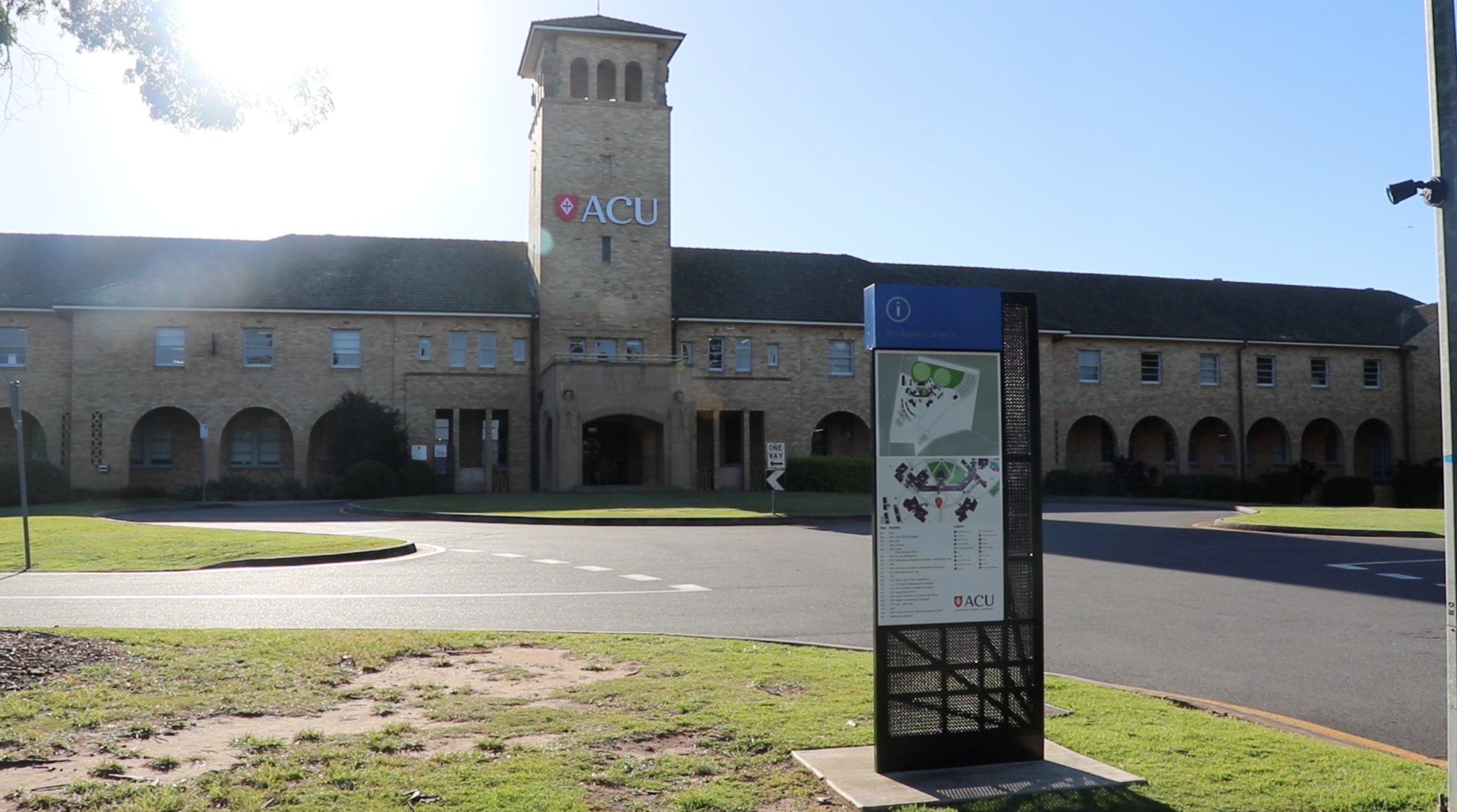
Clair James went to school in India for 8 years and then attended school in Australia for the remainder of her schooling.
Miss James says that teachers are valued differently in both countries and that there is something to learn in the way India values teachers to better the overall success of the education system.
‘I think teachers are valued in Australia but probably not to the same degree [as Indian teachers],’ says Clair James.
It’s a respected job in both countries but teachers in India are given a lot more power over the kids,’ she says.
Teachers are vital to the success of any education system.
They are the ones to facilitate change in a society and they are the ones to teach our children at a crucial time in their lives.
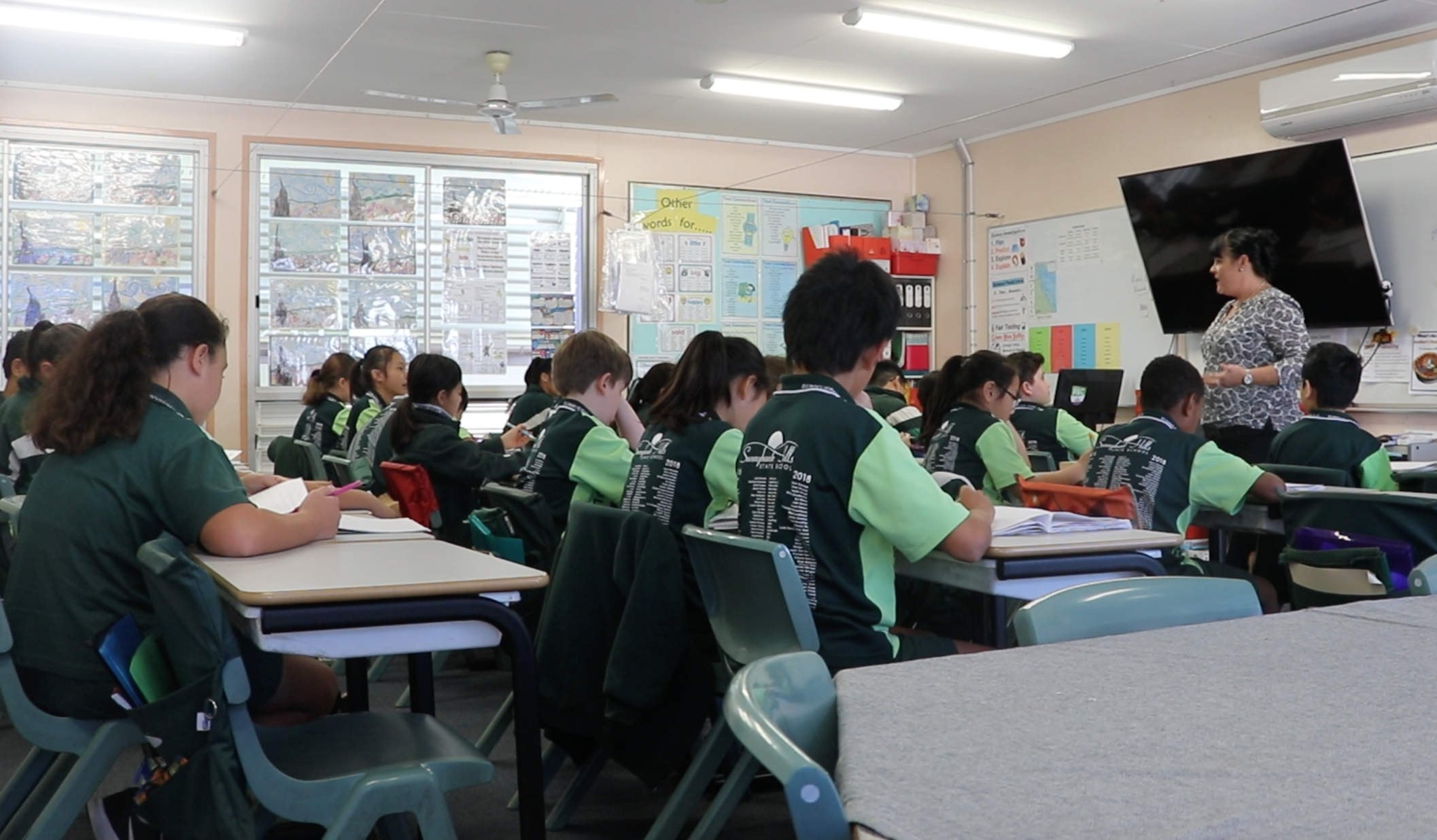
The respect and value we have for teachers changes the quality of work that they do.
It is clear when drawing comparisons between India and Australia that if a teacher is passionate about their job and if they feel like a valued member of society, they will be more effective.
If we value our teachers, we are more likely to see better outcomes in education.
Teachers need to be respected if they are to be successful.
Pre-service teacher education should have a practical focus to increase the confidence of young pre-service teachers.
If we value education, we need to value our teachers.
